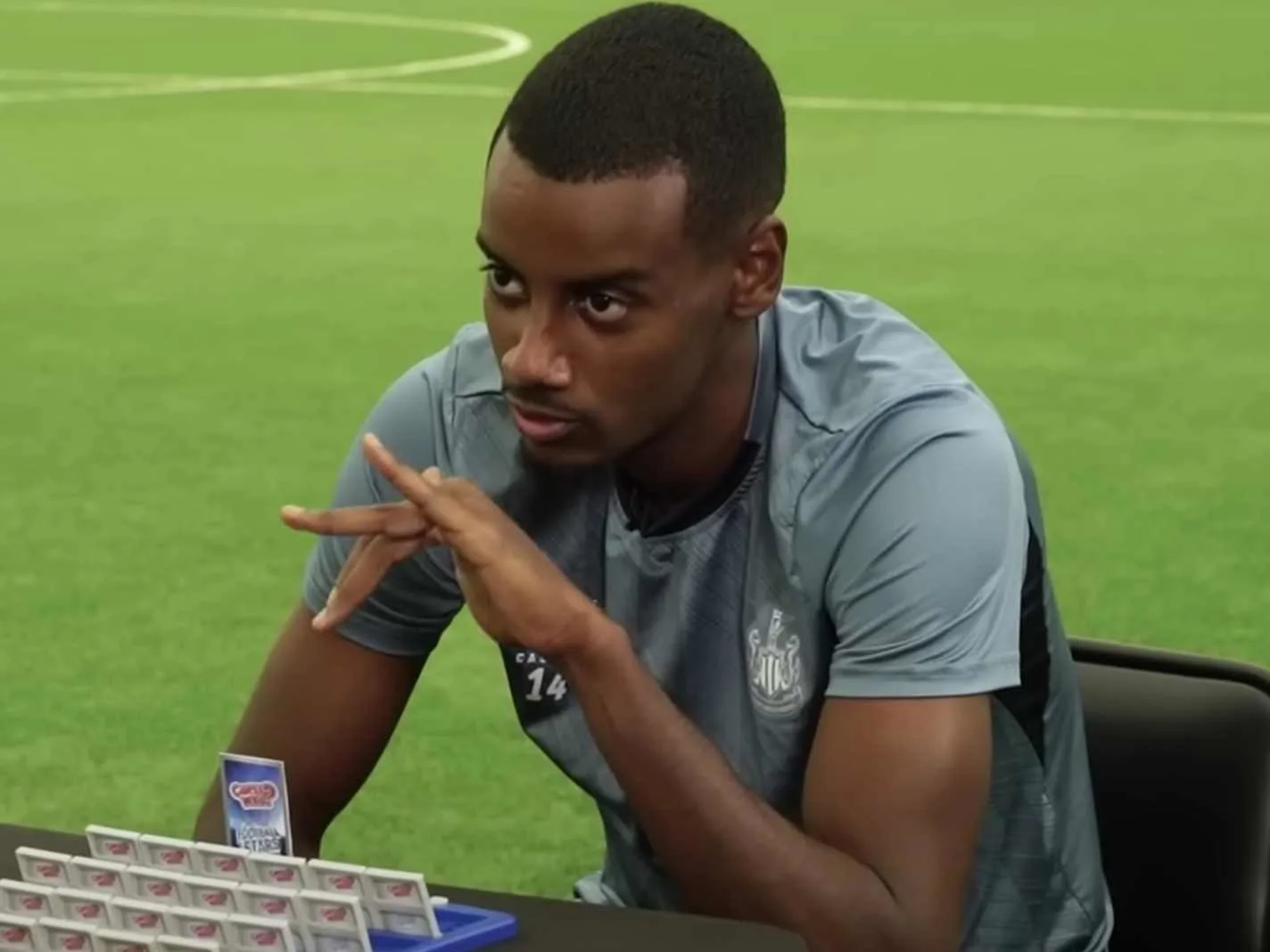Newcastle United striker Alexander Isak has had a memorable first year at the club and appears to have taken little time getting perfectly integrated into the squad, which includes communicating with his teammates in perfect English.
The Swedish forward never spent any time in England before his move to Newcastle, playing for the likes of Borussia Dortmund and Real Sociedad in his career.
The 23-year-old grew up in Solna, Sweden before moving to Germany as an 18-year-old to kick-start his rise to the top leagues of European football.
After enjoying a couple of prolific campaigns in La Liga for Real Sociedad, the Swedish forward was signed by Newcastle United in August 2022 for a club-record fee.
He has since validated himself by being quite consistent for the Magpies, helping them to a top-4 finish last season and nudging over Callum Wilson to become his side’s first-choice no.9.
Alex Isak speaks perfect English in video
Isak has started the season reasonably well, scoring two goals in their first three games and being responsible for Virgil van Dijk’s sending off in his side’s recent loss to Liverpool.
It looks like he is also quite a popular figure in the Newcastle dressing room, who loves to indulge in banter with his teammates and mess around with them.
In a recent video of a ‘Guess Who’ edition released by the Magpies’, Isak can be heard speaking in surprisingly fluent English with a rather wicked accent.
He goes up against defender Jamaal Lascelles and can be heard speaking in a weird accent that might be a mix of a Londoner’s speaking accent and a bit of a Cockney influence to it too.
Why do Swedish people speak English so well?
Even though he’s only been at Newcastle for a year, Isak appears to have become fully fluent in English knowing how much that can be help him communicate and grow closer to his teammates.
His accent definitely surprised many because that is not something you’d expected to hear from a Swede, as English is not their primary language.
However, one major advantage when it comes to Swedish footballers is that the majority of them are very fluent in speaking English. As per a report by the European Commission, over 90% of people in Sweden can speak English as a second language.
In the English Proficiency Index worldwide ranking, Sweden has ranked in 7th place and Swedes are considered to have ‘very high proficiency’ in speaking the language.
There is actually a reason behind this. In Sweden, English is a mandatory learning subject in school, with children usually beginning to learn it from the age of 8-10 years, perhaps from fourth grade.
It is also regularly taught through secondary school and is actually mandatory for graduation as well. Moreover, Swedish parents also love exposing their children to English TV or media, which helps them develop a strong understanding and learning ability for the language well before they are adults.
The Origins and Upbringing of Alexander Isak
As a result, Newcastle benefitted from Isak being quite fluent in his English-speaking ability after spending his career playing in places like Germany and Spain.
In fact, one fan even noted that Alexander Isak is not only fluent in speaking English – but can also speak 4 other languages namely Germany, Spanish, Swedish and Tigrinya. The last one probably coming through his heritage as his parents are from the African country Eritrea.
Isak is a fast learner, so there is a strong chance that he learnt this Londoner accent on his own after seeing how people in England speak.
It also could be because of his Eritrean heritage because of people from the country having an accent like that.
Eritrea was under the British administration from 1941-1950, so that could’ve been the root for influencing the accent.
The 23-year-old has actually delighted Newcastle fans with his impressive accent and brilliant personality, with supporters loving his dedication to becoming a part of the Magpies’ culture and embracing them as his own.







